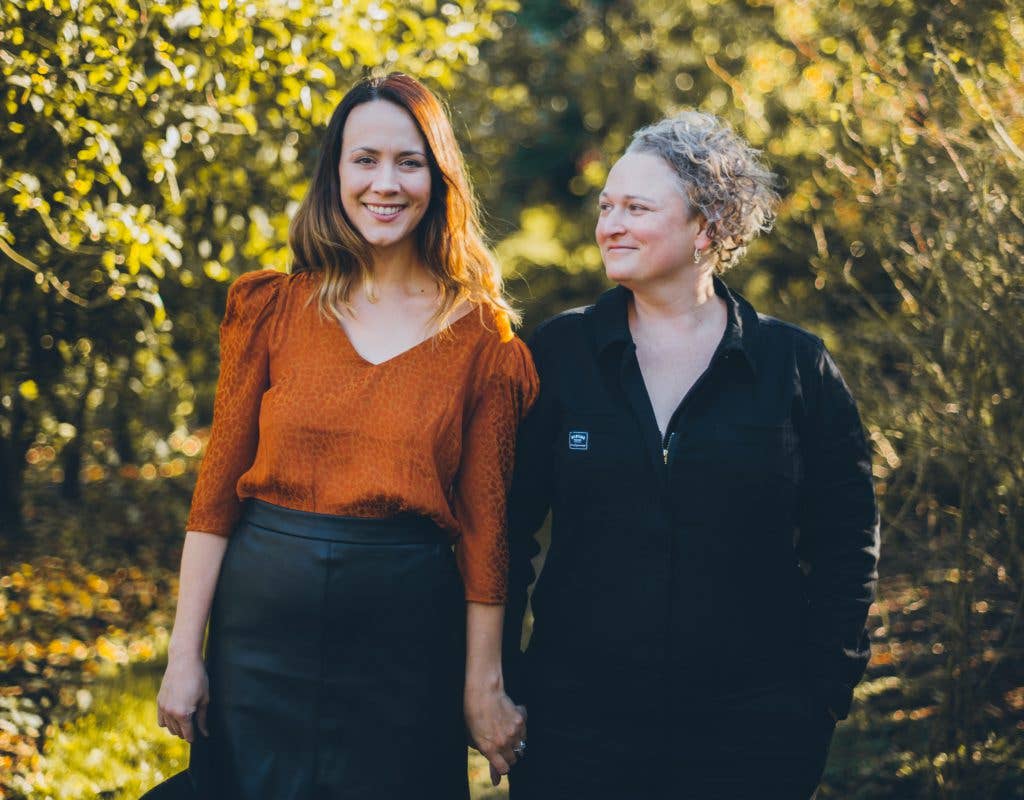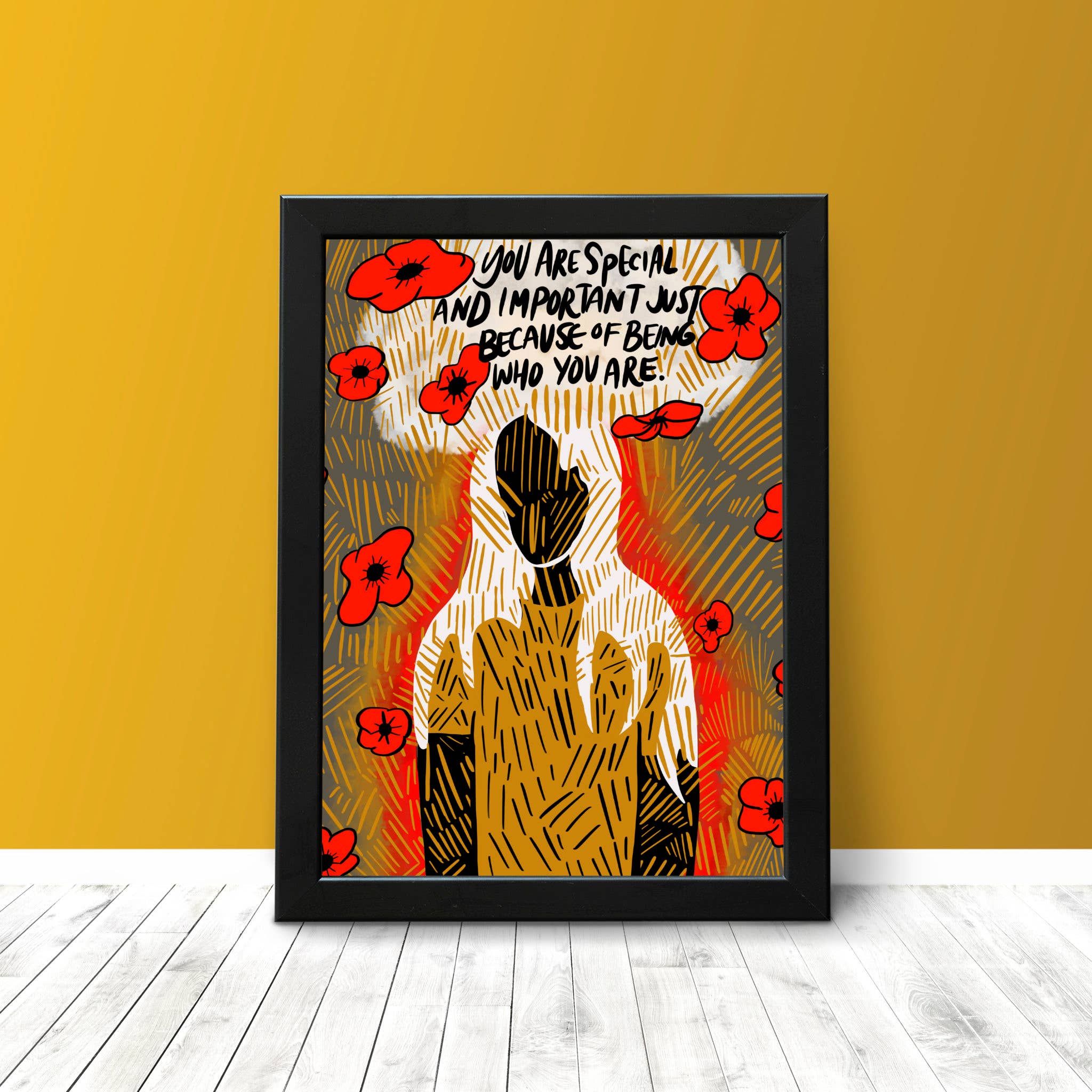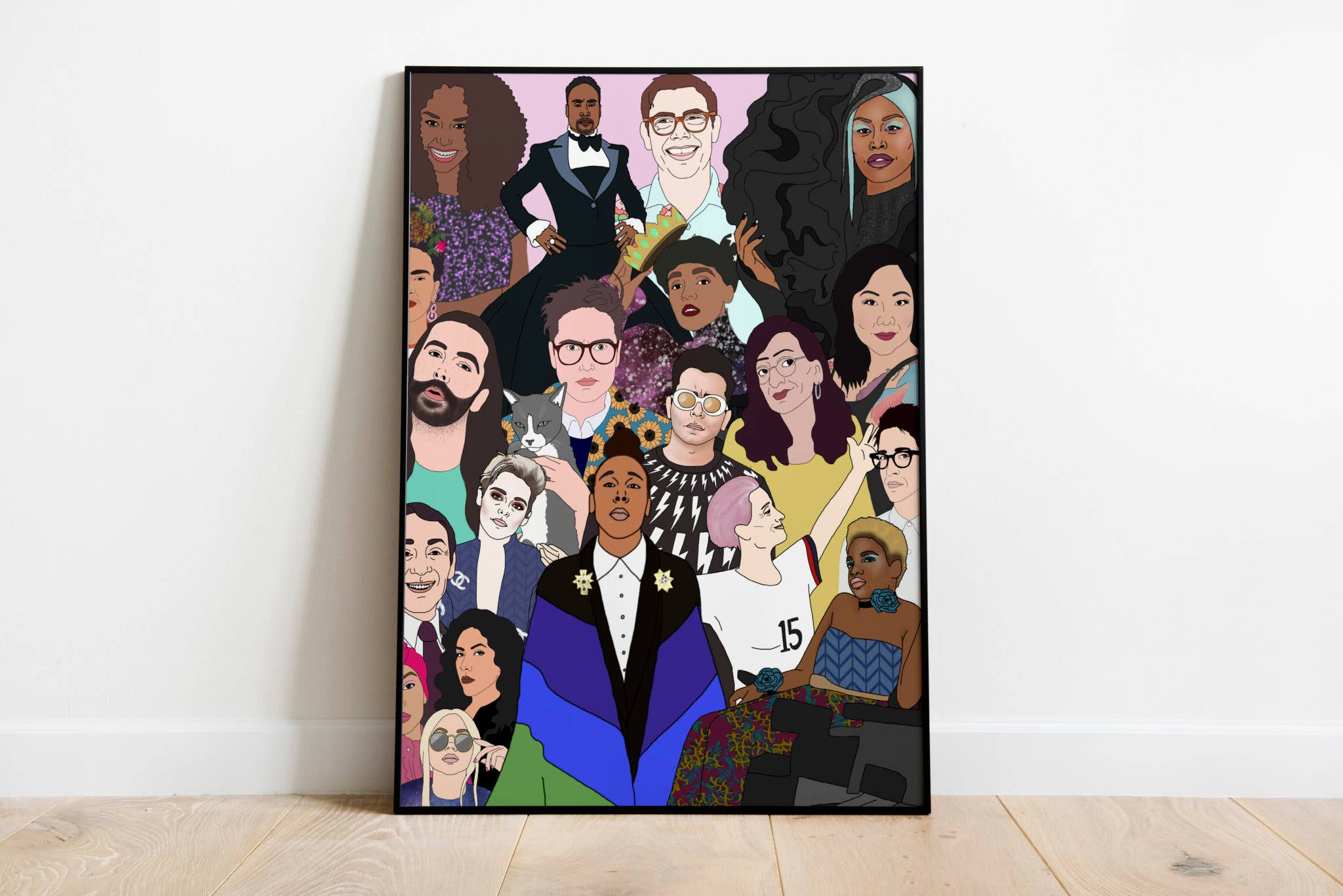
This week we’re excited to feature Jenn Lazar, owner of Citizen Ruth, an ethics-forward company providing intersectional feminist art, books, clothing, jewelry, and home accessories. Created first as a handmade jewelry company in 2007, Jenn has grown Citizen Ruth into a national retail brand that combines art and media with social responsibility and activism. With a flagship store located in Portland, Oregon, Citizen Ruth “directly supports over 250 womxn, LGBTQ+, and BIPOC makers from all over the world.” Plus, all products from the Citizen Ruth line, which are sold in 500+ stores nationwide, are proudly crafted in the Portland studio.
Jenn chatted with Dani Lipsman, a Risk Analyst at Faire and a founding member of Flaire, our internal resource group for LGBTQ+ employees. Dani joined Faire in 2018 after a decade-long career in federal politics. Tired of constantly moving around the country, she and her girlfriend, now fiancée, packed up and moved west. Outside of work, Dani can be found running in Golden Gate Park, studying German to impress her future Swiss in-laws, and lecturing Californians on “real” BBQ, like the true Kansas Citian she is.
Dani Lipsman: Let’s start from the beginning. How did you make the journey from launching a jewelry company to becoming a national retail brand encompassing many other products?
Jenn Lazar: I made jewelry by hand for 11 years. I worked really hard for a really long time, but no matter what I did or what idea I came up with to keep things fresh, there seemed to always be a cap on how big we could grow. I always had the dream of being a job creator, and I just felt that I needed to branch out in order to create jobs and support more people. Opening the store in 2018 was a turning point for us. It allowed us to get a sense of what people wanted and we shifted our manufacturing accordingly.
What does the process look like for sourcing the brands you sell?
I usually get inspired by something happening in the world or an aesthetic, and then I see if we already source the materials or items we would need to make it. If we don’t, I call around to local workshops to see who might, and try to create a partnership. That was the case with Bamboo Revolution, a local Portland company specializing in bamboo sourcing and customization projects. I had sourced material for a booth display from them and then realized that they were a full-service manufacturer. We now partner with them on our bamboo wall art and it has been a wonderful experience.
What does the process look like for creating new products for the Citizen Ruth line in your Portland studio?
Almost all of our design work is done by an all-womxn art collective. They either send over artwork they have created, or I request certain genres. They are all independent contractors and we have a very supportive relationship. We have 11 artists right now and we are in the process of signing with two more. They get paid a percentage of every item we sell. For some, this income is now enough to fully support them. It is the thing I am most proud of.

You have to be pretty vulnerable to choose to have your business reflect your queer identity. Was that an obvious decision for you?
I never really questioned it. When I was graduating from high school, I was the only out person at my school. Ellen DeGeneres came out my junior year and it was pivotal for me to see a queer woman speak her truth. I wrote an article about it in my high school paper and basically outed myself. It wasn’t something that I consciously did — I was just compelled to write about the historical aspect of that particular moment. For so much of my life, I was hungry for queer representation, but found it lacking in TV and film. When I got older, I realized this hunger was actually about a deeper need to feel seen. This is how we approach our store and brand. Are we making sure that anyone who crosses our path can see themselves in what we are putting out there? The soul of our store is rooted in equality, feminism, intersectionality and social justice. Those ideals will continue to be at the core of our value system personally and professionally.
Is it something that you celebrate internally with your employees as well?
All our store employees are queer and our production staff all identify as queer. Our queerness doesn’t define us, but it is a unifying trait and it makes for a very safe work environment, overall. Almost all members of our artist collective, which provides almost all of the art for our line, identify as queer as well. So it’s pretty central to our brand, who we are, what we believe in, and what we stand for. It’s nice to see that brands like Kweer Cards that are more widely available now and cater to an underrepresented audience.
I’ve experienced the same thing. My fiancée and I got engaged last year, and on our wedding website we are sharing links to cards that our guests can actually buy for us because they won’t be able to find them at CVS.
Right! There is much more out there now, which is something we are just thrilled about. The fact that we are able to provide queer content that is relevant and made by queer people for a wide audience is a real breakthrough. The interconnectivity throughout the community is important especially during this time. People are keeping us afloat by buying from us. This keeps my production staff working, which keeps the artists receiving commissions, and so on and so forth; and it connects all the way down the line to the suppliers of raw materials and box makers. We’re pretty grateful for the opportunity to positively affect good people in a substantial way.
What does Pride mean to you?
Pride is about visibility. It’s about building a community in which you feel safe, creating that for others, and then celebrating it. People who don’t understand why we need a parade and celebration are people who don’t understand being marginalized. Living on the periphery of a society causes people to come together to form a safer place to exist. For young people who are just figuring themselves out, it is vital to be seen in a culture. I am seeing so much more representation now then I ever did growing up. The generations who have come after me will not be the only one out in their high school. Younger generations are embracing gender fluidity, sexuality as a spectrum, and labelling existences in a way we, as a society, have never seen before. The future is now and it is queer as hell!
Why is intersectionality in the queer community so important?
Intersectionality is important in every community. Black lives can’t matter unless all Black lives matter — that includes LGBTQ+ folks. Homophobia, transphobia, and misogyny are rampant in every community, and we can never overcome our history if all marginalized people don’t come together to bring about change.

What is the most inspiring thing to you about the LGBTQ+ community?
Our LGBTQ+ community is resilient! There has been so much hatred and vitriol spewed at us and yet we march on. We don’t give up, and we are no longer content living in the margins. I’m inspired by young LGBTQ+ folks the most. Being the mother of a trans child, I can tell you firsthand, my kid is so much stronger than I was. She is inspiring, she is proud, and she will not stand for being less-than. She inspires me to fight harder, every damn day.

